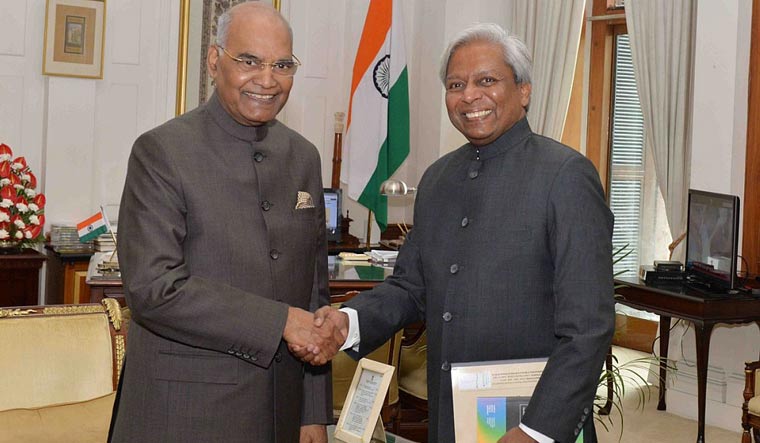At a time when the Narendra Modi government is being criticised heavily by opposition parties and commentators for its handling of the second wave of COVID-19, a senior adviser to the government exuded optimism about the country's preparedness.
In an interview to The Times of India published on Friday, Principal Scientific Adviser K. VijayRaghavan declared the country is "much better equipped and in a much better situation where we can have livelihoods and lives both safe."
Explaining the reason for his optimism, VijayRaghavan told The Times of India, "Last year, clamping down on all movement allowed raising resources to build up your healthcare systems, facilities, PPEs and get better organised. But the virus still remains. One year later, we not only know what we need to do to be prepared, we also have all the technologies and resources in place. The treatment has improved enormously and we have vaccines at hand."
VijayRaghavan argued people's attitudes owing to their livelihood needs and social interactions had resulted in "giving opportunity to the virus to have a sharper rise and a stronger rise". He claimed, "With the number of cases coming down we relax at multiple levels, then the population that is sequestered suddenly becomes available to the virus for a more rapid spread."
VijayRaghavan highlighted multiple innovations that originated in India since the start of the pandemic last year, noting that development of Covaxin, the first indigenous COVID-19 vaccine was "very important".
On the issue of vaccination, VijayRaghavan claimed "India has done very well compared to the US and China. All of them have done really well, but India has done enormously well."
VijayRaghavan attributed the shortage of hospital beds to the tendency of the middle class and upper medical class to "typically go to a set of hospitals which will get crowded very rapidly".
VijayRaghavan hoped the shortage of hospital beds would ease as facilities run by the DRDO, railways and defence forces came into the picture.




